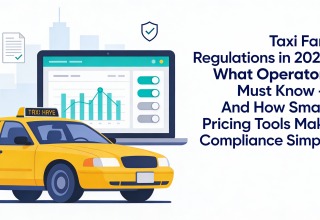We are living in an era where artificial intelligence, automation, cloud computing, and interconnected smart devices shape nearly every aspect of modern life. From communication and finance to healthcare and national security, technology has become the backbone of global infrastructure. But this rapid digital transformation also brings an urgent question to the forefront: who will protect it? This is where the study of cybersecurity becomes not just important, but indispensable.
AI: A Powerful Tool — and a Growing Threat
Artificial intelligence has made remarkable progress, enabling predictive analytics, autonomous systems, and smart problem-solving. Yet, cybercriminals are now harnessing AI for malicious purposes. AI-driven cyberattacks can learn from system defenses, adapt in real time, and execute sophisticated breaches with minimal human input.
Deepfake technologies, powered by machine learning, are creating fake voice and video recordings so realistic they can fool even the trained eye and ear. Phishing emails generated by AI can personalize content to appear indistinguishable from legitimate communications. As AI advances, the line between real and fabricated becomes harder to distinguish, making cyber defense a high-stakes challenge.
Studying cybersecurity allows individuals to understand how AI can be both a tool and a threat. It equips them with the technical, analytical, and ethical knowledge required to combat AI-driven attacks and build systems that are secure by design.
A Hyperconnected World Means More Vulnerabilities
The Internet of Things (IoT) has connected billions of devices — from smart refrigerators and thermostats to medical implants and industrial sensors. While this connectivity adds convenience and efficiency, it also expands the global attack surface. Every device connected to the internet becomes a potential gateway for cyber threats.
What happens if a hacker gains control of a smart home? Or worse — infiltrates a power grid, airport control system, or hospital network? These are not hypothetical situations; they have already occurred in various parts of the world.
Cybersecurity education teaches how to secure these devices, encrypt communications, manage identities, and monitor anomalies. With more systems being automated and connected, studying cybersecurity has become essential for ensuring safety in both digital and physical environments.
The Rise of Cybercrime-as-a-Service
Cybercrime has evolved from isolated hacking incidents into a professional industry. Organized crime groups, state-sponsored actors, and ransomware syndicates collaborate across borders to exploit vulnerabilities for financial or political gain. Attack tools can now be purchased online through “Cybercrime-as-a-Service” platforms, allowing even inexperienced individuals to launch devastating attacks.
These criminals are constantly innovating. Ransomware can shut down entire corporations or city services, demanding payment in cryptocurrency. Supply chain attacks can compromise thousands of businesses at once by targeting a single software provider. Data breaches expose sensitive personal and financial information, leaving millions at risk.
This escalating threat landscape demands professionals who understand both technology and human behavior — individuals capable of anticipating threats, building resilient systems, and responding to breaches with precision. This is exactly what the study of cybersecurity empowers people to do.
Cybersecurity in the Age of AI Ethics and Responsibility
While AI systems are capable of identifying patterns and detecting threats faster than humans, they lack ethical reasoning. AI can recommend actions, but it cannot determine whether those actions are morally or legally acceptable. For example, should an AI system have the authority to cut off a user’s access to critical services during a suspected attack? Who bears responsibility if the AI makes a mistake?
Cybersecurity professionals serve as ethical guardians of AI. They ensure that technology remains accountable, transparent, and aligned with human values. Studying cybersecurity helps individuals understand legal frameworks, data privacy laws, compliance standards, and the moral implications of automation and surveillance.
A Field with Unlimited Opportunities
The demand for cybersecurity professionals has never been greater. Governments, corporations, schools, hospitals, and even small businesses are searching for skilled experts to protect their digital assets. The supply of trained professionals is still far below the demand, creating a global talent shortage.
Students and career changers entering cybersecurity can choose from a wide range of roles. These include ethical hackers (penetration testers), digital forensics analysts, cloud security engineers, AI threat researchers, security operations analysts, and Chief Information Security Officers (CISOs). Many positions offer competitive salaries, remote work options, and long-term career stability.
For those looking to explore pathways into the field, Programs.com provides a comprehensive Cybersecurity Education & Careers Guide, offering the latest information on degrees, certifications, and career specializations.
Cybersecurity Is About More Than Technology — It’s About Trust
At its core, cybersecurity is about protecting trust. Every time we send a message, make a payment, or store sensitive information, we place our trust in technology. That trust must be safeguarded. One successful attack can disrupt livelihoods, compromise privacy, or even endanger lives.
Studying cybersecurity helps individuals become guardians of this trust. They don’t just defend systems — they protect people, communities, economies, and nations.
A Critical Component of Global Stability
The age of AI and advanced technology brings immense possibilities, but also unprecedented risks. Cybersecurity is no longer just an IT discipline — it is a critical component of global stability. As AI grows more powerful and digital infrastructure becomes more complex, the world needs experts who can anticipate, detect, and neutralize threats before they cause harm.
Choosing to study cybersecurity is more than a smart career move — it’s a commitment to shaping a safe and ethical digital future for everyone.




















